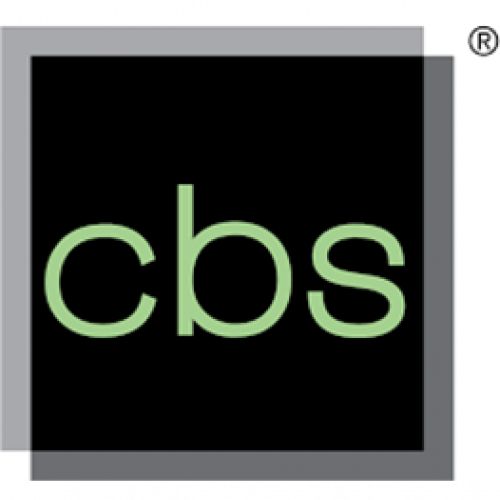The Credit Union Advantage
The Credit Union Advantage
Are you looking for a financial institution that prioritizes your individual needs and fosters a sense of community? Credit unions might be the perfect solution. In this quick guide, we will dive deep into the world of the credit union industry and credit unions specifically, exploring their unique features, advantages, and how they differ from other financial institutions. By the end, you'll have a solid understanding of the credit union difference and the benefits we offer, empowering you to make an informed decision about your financial needs.
That Sounds Nice, but What is a Credit Union?
A credit union is a not-for-profit, member-owned financial cooperative that offers a wide range of banking services - loans, deposits, and more its members. Wow, that sounds like a mouthful, right? But it's true.
We offer the same things, from free checking to credit cards and the latest innovations in online banking. The difference is that we, as an industry are centered around people and not profit. It is truly the cornerstone of who we are, and why we can help people save money through every stage of their life.
Credit unions like Pathways Financial Credit Union operate with the primary goal of serving their members by providing financial solutions tailored to their unique needs. Unlike traditional banking institutions, credit unions emphasize the well-being of their members over generating profits for shareholders.
That Sounds Great! Where did Credit Unions Come from, and Why am I Only Hearing About Them Now?
We've been around longer than you think. The concept of credit unions dates back to the 19th century in Germany, where local communities came together to form financial cooperatives to support their members.
The idea quickly spread to other countries, and the first credit union in the United States was established in 1909. Since then, many credit unions have grown in popularity, with over 100 million members in the United States alone.
The reason you may not be familiar with credit unions is that for a long time, membership was tied to where you worked or lived. That is no longer the case for many credit unions. At Pathways, if you live or work anywhere in Ohio (and more), we can help you with your financial needs.
So You Offer the Same Products as Banks, but Better?
Exactly! Here's just a brief list of what we offer. You'll see many similarities to what you'd expect from a traditional banking experience.
- Savings and checking, and other deposit account options
- Auto loans
- Credit cards & personal loans
- Mortgages, other home loans, and home equity loans
- Comprehensive and cutting-edge online banking and mobile banking
- Financial planning, investment services, and retirement accounts
- Insurance products
- Direct Deposit and Account Transfer Options
- Business accounts and loans
But here's the best part: While many credit unions provide similar services, there are key differences between the two:
- Ownership: Credit unions are owned by their members, while banks are owned by shareholders.
- Profit Motive: Credit unions are not-for-profit institutions, while banks aim to maximize profits for shareholders. This usually translates directly into fewer fees, so you directly benefit when you pay less out of pocket for essential services.
- Decision-Making: Members of a credit union have a say in its decision-making process, while banks make decisions based on shareholder interests.
- Regulatory Framework: Credit unions and banks are regulated by different agencies and follow different regulatory requirements. Credit Unions are regulated by the National Credit Union Administration (NCUA), and are insured the same way as the FDIC.
Advantages of Credit Union Membership
In addition to the benefits already mentioned, credit union membership offers several inherent advantages that make them an attractive choice for consumers.
- Sense of Community and Shared Values: Credit unions cultivate a sense of community among their members, promoting cooperation and shared values. This creates a more personal and supportive banking environment, as members work together for their collective financial success.
- Financial Empowerment: Credit unions often focus on empowering their members by offering financial education resources and workshops. These opportunities help members make informed financial decisions and develop a better understanding of money management.
- Access to Exclusive Discounts and Offers: Some credit unions partner with local businesses or national organizations to offer members exclusive discounts and special offers. These partnerships can help members save money on a variety of products and services.
- Voting Rights and Participation: Credit union members have the unique opportunity to participate in the decision-making process by voting on important matters related to their financial institutions. This level of involvement allows members to have a direct impact on the credit union's policies and future direction.
- Social Responsibility: Many credit unions are committed to social responsibility, investing in local community projects, and supporting charitable causes. By choosing a credit union, members can contribute to positive social change and have a meaningful impact on their community.
- Flexibility in Lending Practices: Credit unions are known for their flexible lending practices and consideration of helping people with auto lending, home loans, and more. This philosophy be especially helpful for members with debt, or limited or imperfect credit histories. By considering each member's unique financial situation, credit unions may provide credit options that might be otherwise unavailable through traditional banks.
- Financial Stability & Security: Credit unions have a reputation for being financially stable, as they generally maintain conservative lending practices and prudent risk management strategies. This stability can provide members with peace of mind, knowing that their funds are secure and their institution is well-managed.
So Credit Unions Are Regulated or Insured Like Banks?
Good question! Yes. Credit unions in the United States can be chartered at either the federal or state level, each with its unique set of regulations and oversight.
Here's a quick rundown:
- Regulatory Agencies: Federal credit unions are regulated by the National Credit Union Administration (NCUA), an independent federal agency responsible for overseeing and ensuring the safety and soundness of federally chartered credit unions. State-chartered credit unions, on the other hand, are regulated by their respective state's financial regulatory agency. Credit unions also belong to a national association, CUNA, to help develop strategies to improve how we do business, develop best practices institutionally, and advocate for us as an industry.
- Insurance Coverage: Both federal and state-chartered credit unions are insured. Federally chartered credit unions are insured by the National Credit Union Share Insurance Fund (NCUSIF), which is administered by the NCUA. This insurance covers individual member deposit accounts up to $250,000. Many state-chartered credit unions also carry insurance through the NCUSIF, while others may be insured by a private insurance provider or state-sponsored insurance fund. Pathways depositors are protected for an additional $250,000 through Excess Share Insurance (ESI), private supplemental insurance, for example. Regardless of the charter type, it's essential to ensure that your credit union's deposits are insured.
- Field of Membership: While both federal and state-chartered credit unions have specific eligibility requirements for membership, state-chartered credit unions - like Pathways - may have more flexibility in defining their field of membership. This can result in state-chartered credit unions serving broader or more diverse communities than their federally chartered counterparts (and we do!).
- Consumer Protection Laws: Both federal and state-chartered credit unions must comply with consumer protection laws; however, state-chartered credit unions may be subject to additional state-specific consumer protection regulations (we are!).
Credit unions provide a unique and valuable alternative to traditional banking institutions. As we said before, credit unions are more than just another place to get a loan or check your account in Online Banking.
By prioritizing member satisfaction, community involvement, and personalized service, we offer a more tailored banking experience that can save you money and give you greater control over your financial future.
With a wide range of services and a focus on member well-being, credit unions are an excellent choice for those seeking a banking partner that genuinely caters to their individual needs.
By joining a credit union, you not only gain access to competitive financial products and services but become part of a community that values your voice and supports your local area.
Join Pathways Today!
As you consider your financial options, Pathways Financial Credit Union invites you to join our community of members who have discovered the numerous benefits of credit union membership.
At Pathways, we pride ourselves on offering competitive rates, lower fees, and a wide range of financial products and services, all while providing personalized attention and exceptional customer service.
We are deeply committed to the well-being of our members and our local community, supporting initiatives that promote financial literacy and contribute to the growth and prosperity of the areas we serve.
By choosing Pathways over other local credit unions, you're not just choosing to pay fewer fees or save money on loans and deposits - you're becoming part of a community that values your voice, empowers your financial journey, and invests in your future financial goals.
Explore the advantages of a Pathways Financial Credit Union account today, and experience the difference a member-focused approach can make.
Please visit our website for more information or contact us if you have any questions. Thank you for considering Pathways Financial Credit Union as your financial partner. We look forward to assisting you soon.



























